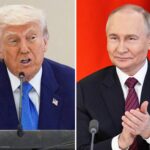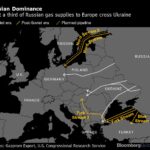The European Union is exploring potential retaliatory measures against China for its continued acquisition of Russian oil and gas, according to a report that highlights escalating tensions between global powers. The initiative, which remains in preliminary discussions, could involve secondary sanctions if the United States aligns with the bloc’s efforts, sources indicated.
EU officials have initiated talks on the matter, though they emphasized the proposals are still at an early stage. A key condition for action is securing full U.S. support and ensuring synchronization with Washington, as outlined by the report. To advance these discussions, EU representatives recently traveled to the United States, while U.S. Energy Secretary Chris Wright is scheduled to visit Brussels later this week.
Since Russia’s intensified conflict in Ukraine in February 2022, China has become the leading buyer of Russian oil. Earlier this year, the EU imposed sanctions on several Chinese companies accused of facilitating industries that support Russia’s military sector. Beijing condemned these measures as “unfair” and criticized the bloc for perceived hypocrisy, reiterating that it strictly regulates dual-use technologies and denies supplying weapons to any party involved in the Ukraine war.
U.S. Treasury Secretary Scott Bessent recently suggested that Washington and its allies could target nations purchasing Russian oil, signaling a potential shift in policy. China has vowed to safeguard its energy interests through “strategic means,” warning that trade conflicts yield no winners.
The situation has drawn further complexity as U.S. President Donald Trump previously increased tariffs on Indian oil imports to 50% over New Delhi’s continued purchases of Russian crude. Indian officials denounced the move as unjustified, with Finance Minister Nirmala Sitharaman reaffirming India’s commitment to securing affordable energy despite external pressures.
Russian President Vladimir Putin recently cautioned Western nations against attempting to influence major economies like China and India, framing such efforts as a strategy to hinder their global economic growth. His remarks underscored the growing geopolitical rivalry over energy dependencies and trade dynamics.









